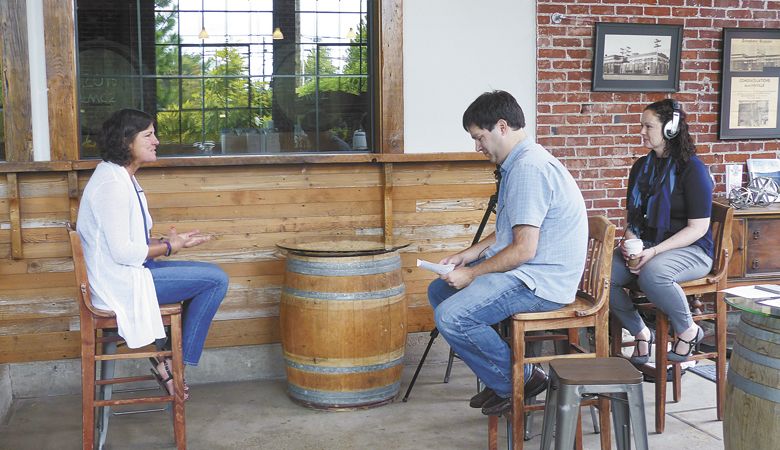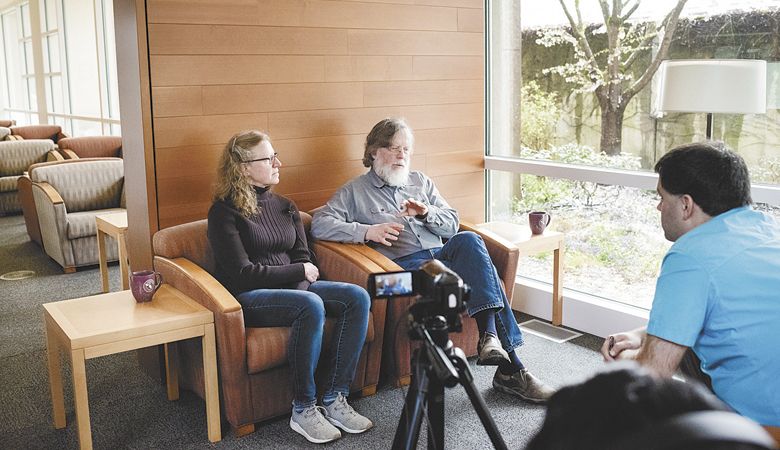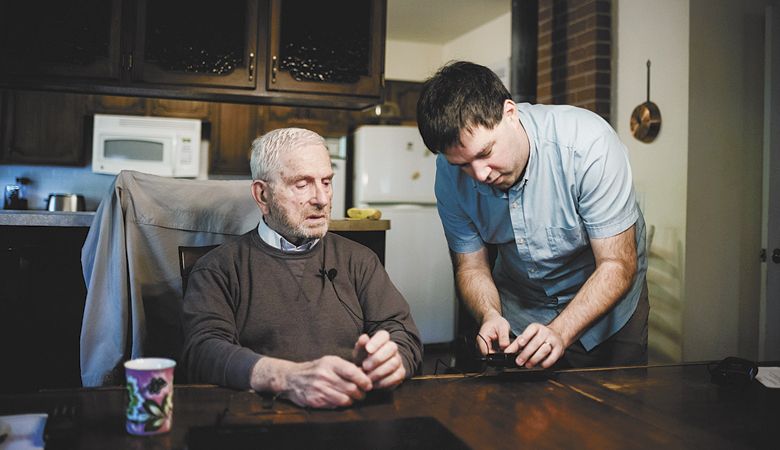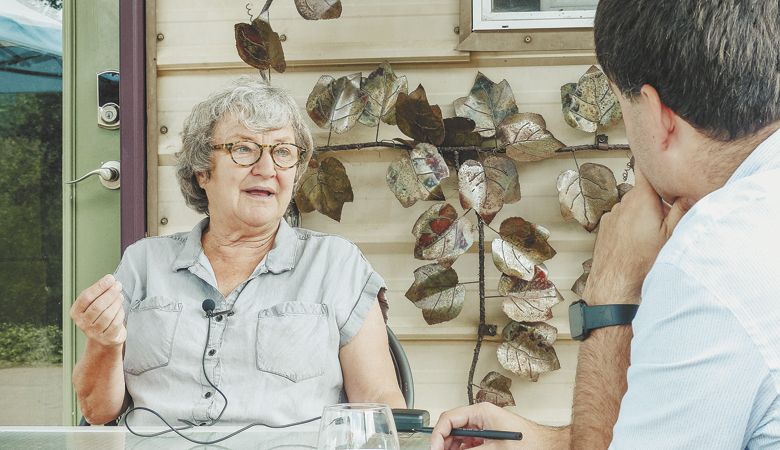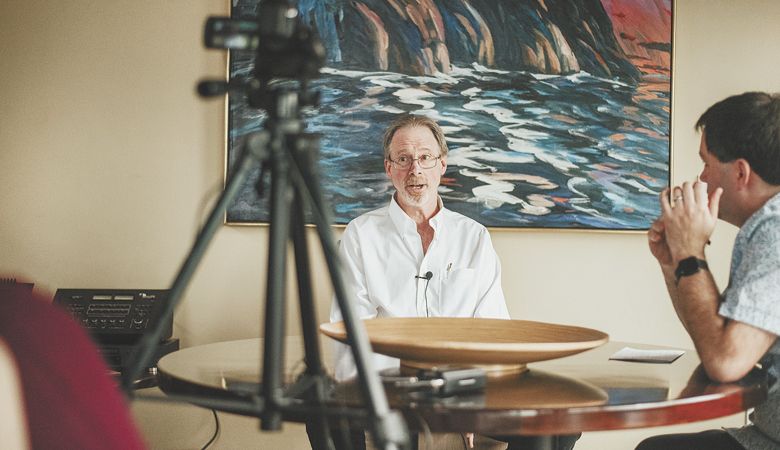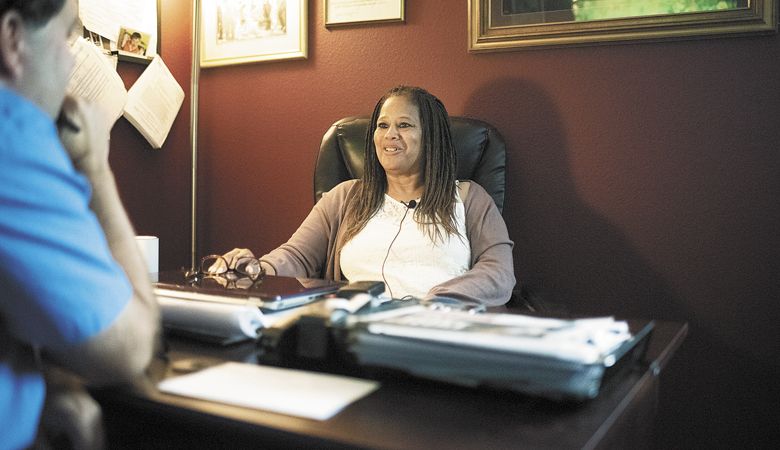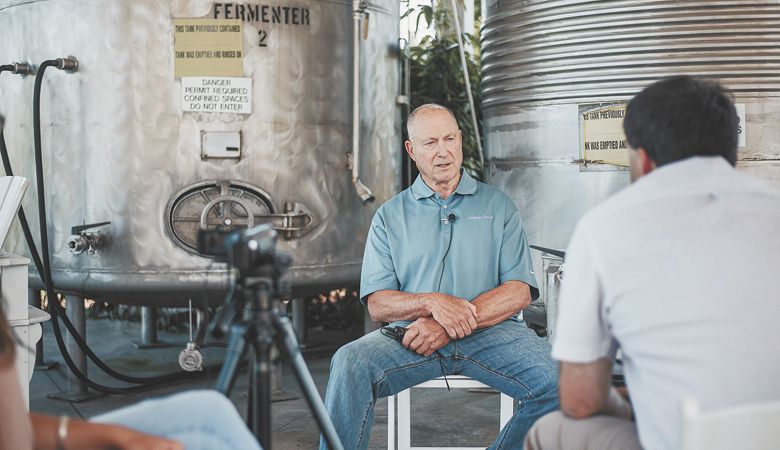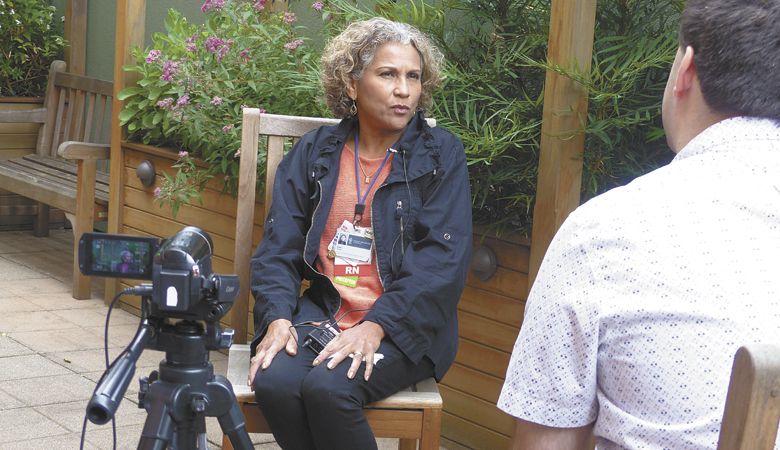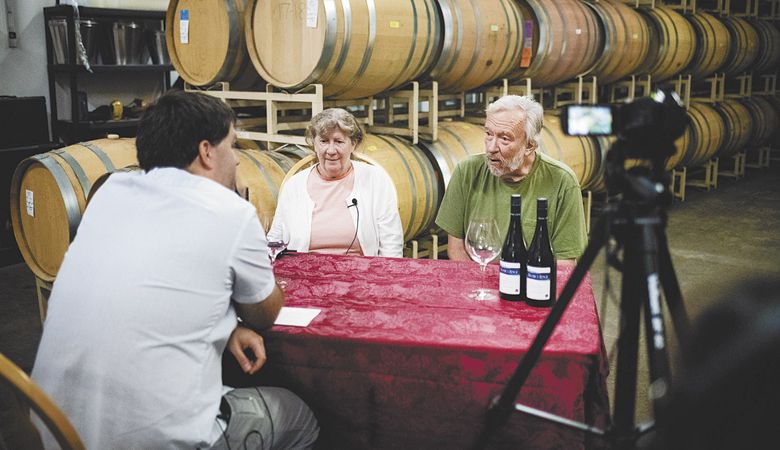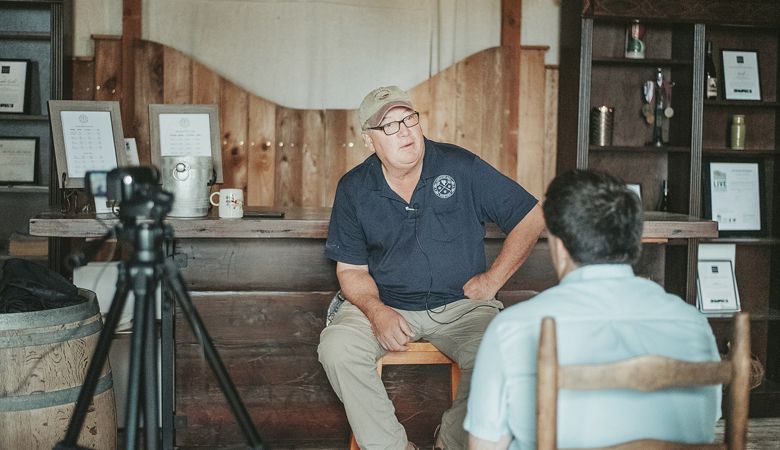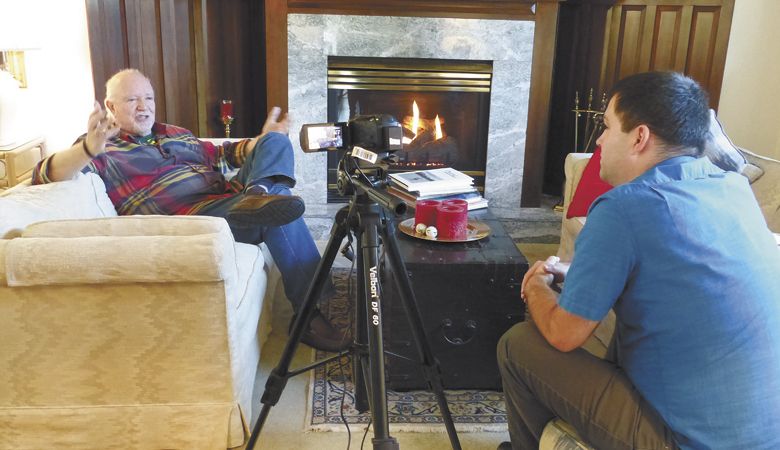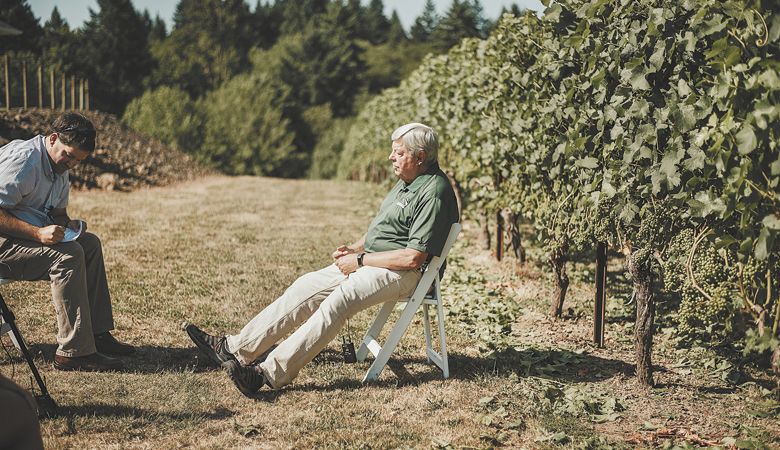Linfield Archive
Documenting Oregon wine’s past, present and future
Blame it on a storage problem. In 2008, Willamette Valley pioneer Susan Sokol Blosser turned over the reins of Sokol Blosser Winery to her children, Alex and Alison. But to truly make space for the future, she needed help tidying up the past — namely 35 years of documents cluttering the winery.
“I was a history major in college, and before we started a vineyard, I worked with private manuscripts at the Southern Historical Collection (SHC), in the basement of the Wilson Library at the University of North Carolina in Chapel Hill,” explained Sokol Blosser. “My work at the SHC gave me an appreciation for what the papers (personal letters, account books, diaries, photos, etc.) of ordinary folks, as well as prominent ones, could tell us about how they lived and what they thought. That lesson stayed with me.”
Consequently, in 2011, Sokol Blosser approached Tom Hellie, former president of Linfield University — then called Linfield College — home to a burgeoning wine education program. To Sokol Blosser, falling under the guidance of Linfield promised stability and longevity.
“My pitch was that Linfield had the opportunity to be the main resource, with primary sources for the historians, of Oregon’s growing wine industry,” said Sokol Blosser. “Linfield could do this by collecting all the old records of the industry’s founders.”
Hellie immediately realized the program’s potential. First, he allocated funds for a shelved, temperature-controlled document storage space within the library. Next, he engaged an experienced archivist to work under the umbrella of the Director of Libraries. And so began the Oregon Wine History Archive (OWHA).
Over time, Sokol Blosser enlisted other early winegrowers to donate their documents to OWHA, including industry legend David Adelsheim. “I think that is the clarity that makes OWHA so incredible. That they’re promising to be THE place — not a place, not one of however many people-want-to-collect-stuff places — but THE place to go,” he said.
Oral History Archive
Today, OWHA comprises an archival treasure trove of photos, artifacts, digital records and oral history interviews, which stand apart from the university’s wine program. According to Dr. Greg Jones, director/chair of the Evenstad Center for Wine Education and Wine Studies, “The OWHA and the Evenstad Center for Wine Education are separate entities on campus. However, we have substantial interactions via wine studies students interning in the OWHA, mutually securing donated items, suggesting interviewees and working together for on-campus and community events that support the wine industry and our programming.”
Rich Schmidt, an archivist recruited from Willamette University’s Mark O. Hatfield Library in 2011 to assist the previous director, Rachael Woody, assumed OWHA directorship in 2017. “It’s a big, complicated job, working with a big, complicated industry,” admitted Schmidt. “We had to quickly learn to accept that the scope of our work was overwhelming…The whole state, the whole industry, the whole history? You can’t do it all, so focus on doing what you can, and doing it well.”
In addition to scope, OWHA’s colorful oral history interviews set it apart from other university archives. To assist him, Schmidt hires, trains and supervises one half-time archives intern and three to six students, most from the wine program. Each student works six to 10 hours per week during school and often full time during summer and winter breaks. This rotating team helps with everything, from archives to oral interview research questions, plus audio-visuals, post-production and social media.
“The biggest evolution has really been the amount of work we’ve been able to do, and that’s a direct result of having a larger number of archives students who are interested in working with the wine industry, and who bring the skill set needed to do the quantity of work we’ve done while keeping the quality high,” Schmidt added. “This is our favorite work to do, and by all working together, we’ve been able to greatly increase the number of interviews we can do.”
Currently, OWHA conducts more than 100 interviews annually, totaling approximately 400 to date. In addition, the archive contains more than 100 interviews donated from other parties. Subjects range from winemakers, vineyard owners and wine industry members throughout Oregon, to international celebrities such as Becky Wasserman and Eric Asimov. Interviews follow a standard template of about 20 questions originally devised by Woody and Schmidt, tailored to fit each interview.
“We’re always working on improving what we do,” Schmidt explained. “Right now, we’re working on using some new software for transcription and captioning, to help our interviews be more useable for research.” Schmidt lists other improvements in the works, such as more “consumable” content, roundtable discussions and behind-the-scenes segments. “Mostly though, we’re trying to keep honing our process and expanding our reach; we still have a lot of stories to document.”
Spirit of the Wine Industry
Undoubtedly, OWHA benefits the Oregon wine industry in numerous ways. “There’s a lot of interest within Oregon wine about the industry’s past, and about how that past informs the present and future,” Schmidt said. “Clearly there’s an interest in interesting materials that might be used for marketing, as well. And, for some of the newest winemakers especially, there’s a genuine interest in what the state looked like before Pinot Noir boomed, and what else might work well here going forward, given the changes in climate, grape-growing science and winemaking technology. We’ve been excited to provide these materials as people try to forge their own path in Oregon wine.”
Additionally, OWHA benefits the students working there, such as Kiana Anderson (Class of 2020) of Hilo, Hawaii. “I decided to apply and utilize my skills to try to make an impact on the way these oral history interviews were documented, and how our archive was disseminated through various media platforms,” she explained. “This job is a blessing, and I am forever grateful for the life-long colleagues, inspiring connections and professional knowledge that I have taken away.”
Other students cite intangible benefits. “Through my work with the OWHA, I learned about the spirit of the wine industry,” said Shelby Cook, (Class of 2019) of Honoka’a, Hawaii. “Everyone talks about the camaraderie of the industry, and about how they built their labels from the ground up, but learning about that in a classroom, versus experiencing it with the OWHA, opened my eyes to so many things … The greatest reward: being able to drink a wine that I learned the story behind. The experience was heightened because I knew what it took for that particular wine to get into my hands. The wine became a storyteller around my kitchen table.”
Without question, working at OWHA deeply impacts students. “Working for the Oregon Wine History Archive was the best decision I made during college,” said Canby student Tia Elder (Class of 2021). “It has been an experience like no other, traveling around Oregon with an amazing and hardworking team, and meeting hundreds of people in the wine industry. For someone who knows she would like to join the wine industry but is not completely sure what part of it, meeting so many influential people has opened my eyes to a world of possibility for my future. The people we meet are incredibly honest but also support the students with our dreams and goals.”
“There are so many rewards to working at the Oregon Wine History Archive,” said Salem student Sofia Zielinski (Class of 2023). “From the vineyards to the tasting room, every single aspect and person involved is necessary and important. I am so grateful I can learn about it all firsthand.”
Curating for the Future
Ultimately, a confluence of past, present and future inform OHWA’s continued success: Oregon wine pioneers willing to donate documents, Linfield University students willing to work and benefactors willing to endow.
“We are grateful to Linfield University for starting the Oregon Wine History Archive to capture the rich history of Oregon viticulture and winemaking,” commented Grace Evenstad, owner, founder and chair of the board at Evenstad Estates. “We’re looking forward to all the industry will accomplish in its next 50 years.”
Presently, OHWA derives funding from the Linfield University Library’s budget, and Federal Work Study funding for student employees. Past grants from the Oregon Wine Board, Oregon Cultural Trust, Oregon Heritage Commission, Yamhill County Cultural Coalition and Erath Family Foundation have also financed student work, purchase of archival materials, and trips to winegrowing regions around the state outside the Willamette Valley.
But, what of the future?
“Through the Evenstad Center for Wine Education and our undergraduate wine studies program, Linfield is deeply committed to helping guide the future of Oregon winemaking and wine business,” concluded Dr. Miles K. Davis, president of Linfield University. “Through the Oregon Wine History Archive, the university is equally committed to preserving the industry’s past. Linfield University is thrilled to be the repository for a key segment of that growth story, through the Oregon Wine History Archive. The entrepreneurs, the risk-takers, the larger-than-life characters — it’s all part of the narrative, and we’re happy to collect it and curate it, and save it for future generations.”


